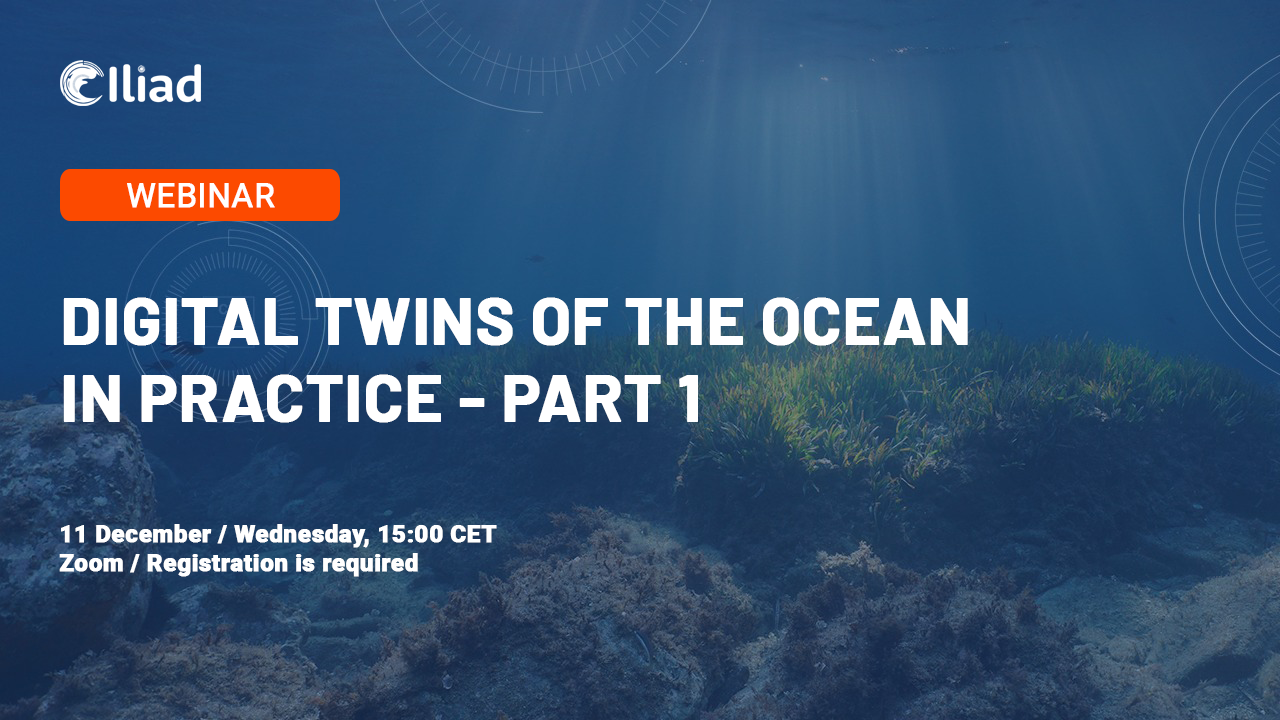Iliad Webinar Series: Digital twins of the Ocean in Practice - Part 1
Start: Wednesday 11th December 2024
The Iliad webinar series continues with the Digital twins of the Ocean in Practice - Part 1 webinar on Wednesday, 11th December 2024 at 15:00 CET. Registration is required.
Agenda
Introduction to Iliad, Bente Lilja Bye, BLB
Iliad technology transfer, Sofia Parsadyan, American University of Armenia
Thematic and local twins in practice:
Oil spill, Antonis Parasyris, FORTH
Seascape ecology and biodiversity, Tom Cohen, University of Haifa
Aquaculture (mussels), Andrea Gugnali, AMA
Presenters
Bente Lilja Bye
Bente Lilja Bye has been a member of the GEO community since 2004 then as Research Director of the Norwegian Mapping Authority. She has been engaged both as representative in the GEO plenary, in committees and contributing to the GEO Work Programme. She has served on the GEO Program Board representing Norway bringing her expertise on the polar regions. Today, Bente runs a small research and consultancy company, BLB, focusing on transforming Earth observation data to information and knowledge for societal benefit. Bente supports the NextGEOSS data hub and platform operations particularly through capacity development and resource mobilization. Bente serves as Innovation Manager in ILIAD bringing her expertise on operational systems such as European Sea Level Service, development on tsunami early warning systems and more. Bente characterizes herself as a nature loving gadget geek and is frequently seen on various expeditions on land or ocean.
Sofia Parsadyan
Sofia is Project Manager at the American University of Armenia, EPIC - Entrepreneurship and Product Innovation Center. Sofia has experience from Technology transfer and commercialization of the research done by scientists in Armenia, design and implementation of the process of market opportunities evaluation of research in math and physics.She has designed & launched an automatized service for getting information about more than 150 available resources for business development of SME’s that has been used by more than 2000 entities.
Antonis Parasyris
Antonis is a researcher at FORTH. He is involved in work packages for several European and regional research projects regarding the development of machine learning applications on climatic and atmospheric forecasting. Also worked on the neighbouring fields of Data science and Data assimilation for climate models along with operational validation of those.
Tom Cohen
A PhD candidate in the Laboratory for Spectroscopy and Remote Sensing at the School of Environmental Sciences, University of Haifa. Research focuses on signal processing, data fusion, and advanced analysis methods using machine learning, with a specialization in satellite-based remote sensing. The primary research area involves the detection of oil spills in the ocean using satellite data, while additional projects in the lab address topics such as vegetation, soil, wildfires, and pollution.
Andrea Gugnali
Andrea Gugnali is a marine biologist and researcher with a master degree at the “University Politecnica delle Marche”. Andrea works for the Italian Association of Aquaculture Farmers (AMA) and also for a little research center, a cooperative, located on the Adriatic coast of Italy, called MARE Soc. Coop. a r.l. where he is vice-president and project manager of various European projects.
Weronika Borejko
Weronika Borejko is a Project Manager at the European Association of Remote Sensing Companies (EARSC), where she supports Earth Observation (EO) companies and fosters connections with user communities. She holds a degree from Warsaw University of Technology and a Certified Associate of Project Management (CAPM). With experience in commercial IT, European Space Agency, and European Commission projects, Weronika has managed initiatives like the PARSEC Accelerator, which launched 15 EO-based products, and ConnectEO, linking European, Chilean, and Australian markets. She is currently focused on projects that link Earth Observation technologies with end users, specifically for climate adaptation in local and regional authorities.
